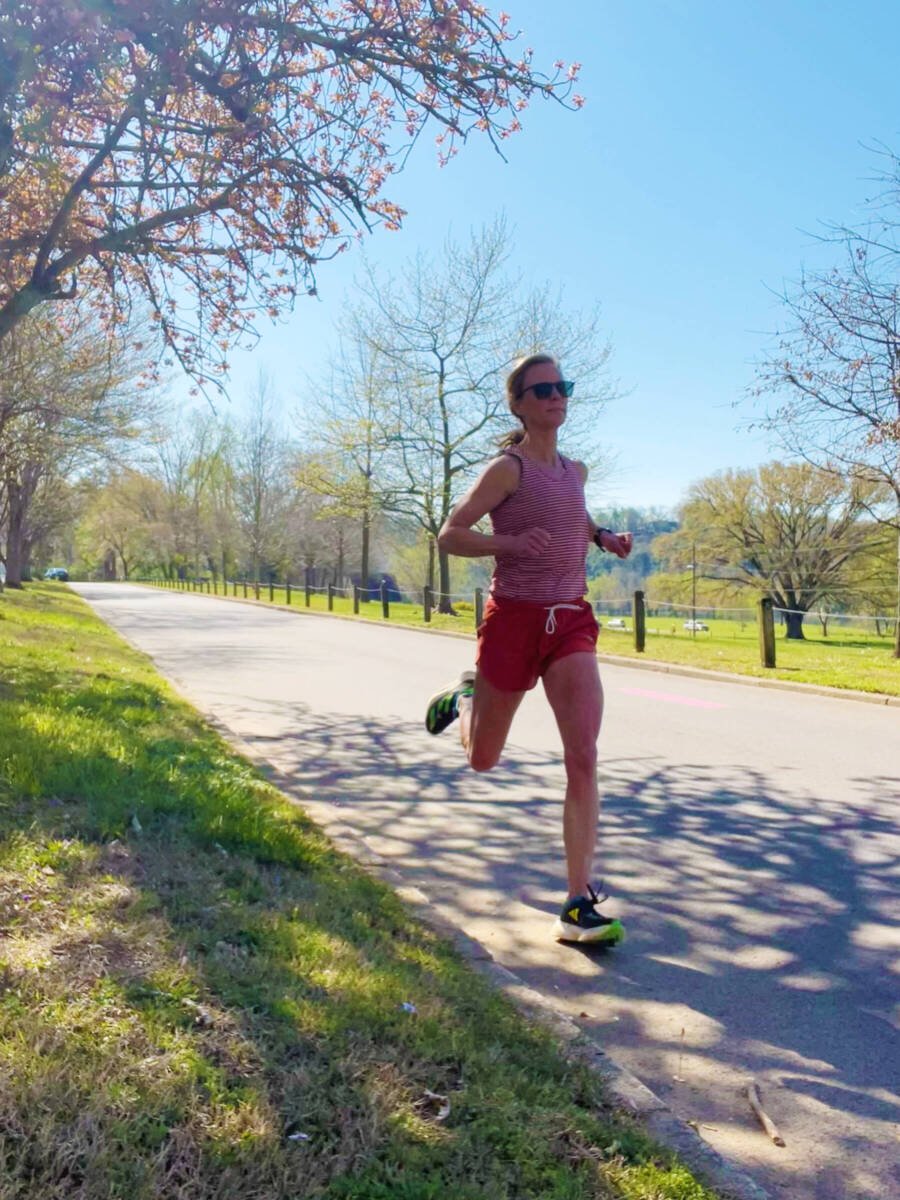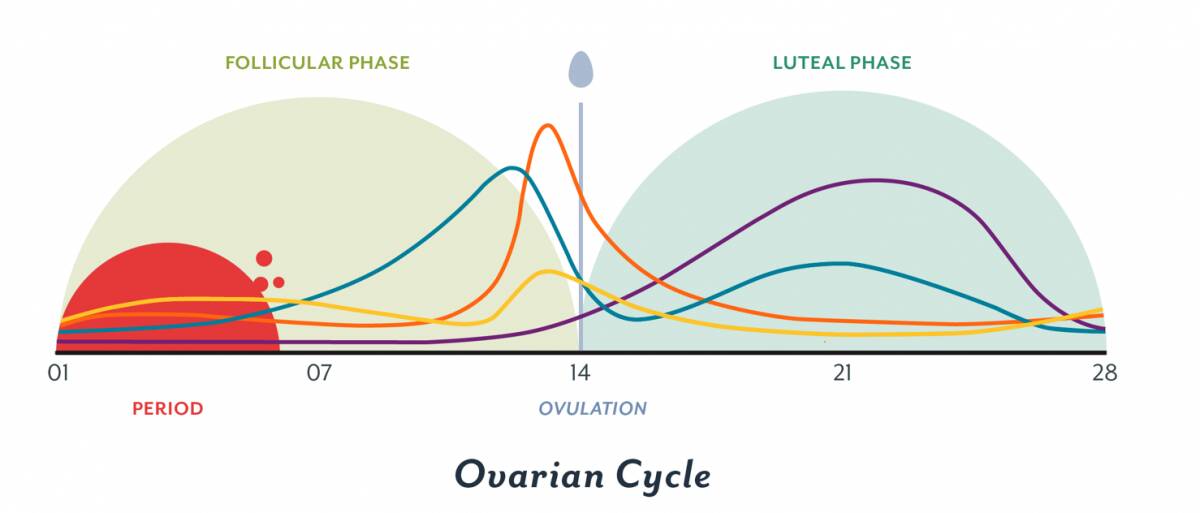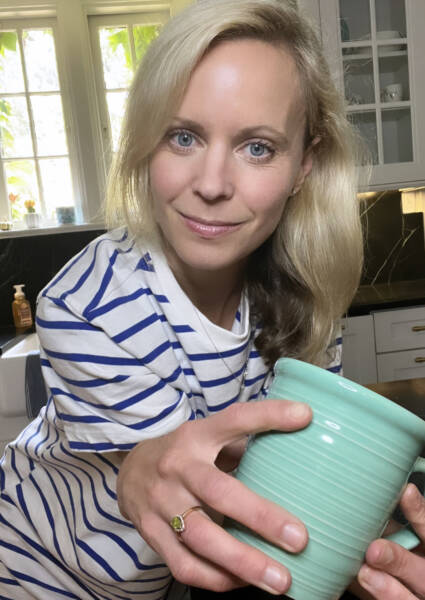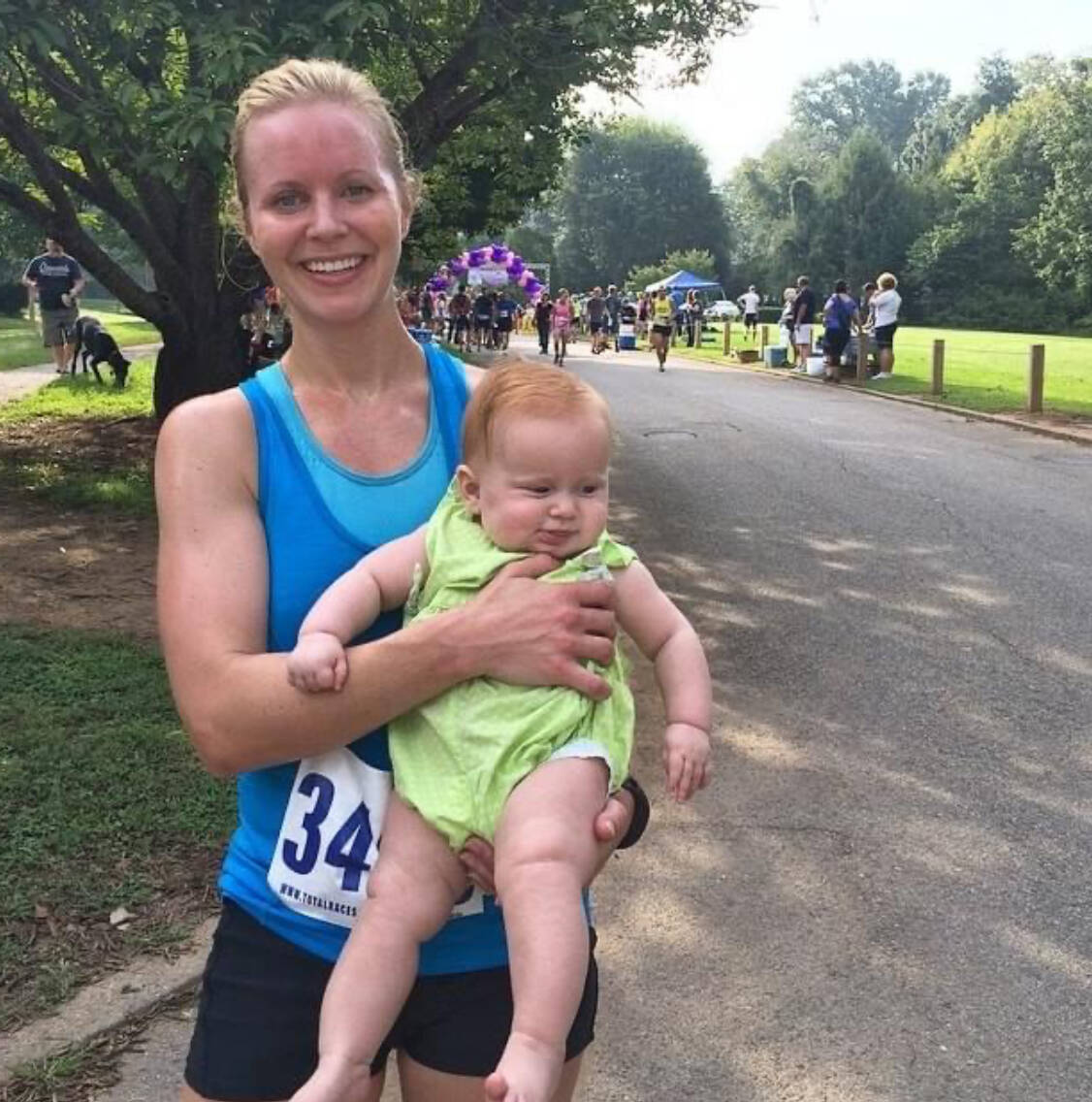Running on Your Period: What to Know
Hormone levels affect almost all we do: how we sleep, eat, drink, feel, and run. Yet, little is really known about how your period affects your running.
The truth is: it can affect it, a lot.

I remember leading up to my fall 2019 marathon and Olympic Trials Qualifying attempt in Indianapolis and stressing that my “time of the month” was going to fall on the day of the race. I worried about how my PMS symptoms or period symptoms would affect my running performance, even considering taking birth control to manipulate my cycle. There was no verdict in my internet search as to whether running on my period on race day would help or hurt my performance.
(The first day of my period was the day before my race and thankfully did not seem to have too much of an impact).
Table of contents
To help clear up how running on your period can affect your performance, I connected with expert Ellie Somers of Seattle-based SISU Sports Performance and Physical Therapy. Sommers is a former high-level soccer player and is currently the physical therapist for the United States Women’s National Australian Rules Football team. She is also a run coach and lift coach who works closely with recreational and elite level athletes.
How does the menstrual cycle affect running performance?
Your period is what is known as an “ergogenic aid,” says Somers. Which means it is a performance enhancer. It is like a woman’s very own, built-in, performance-enhancing drug. Having your period as a runner or athlete is critical to achieving your top performance. If your performance is something you care about, you should care if you have lost your period, have not started your period, or if it has become irregular with little to no explanation. This needs to be addressed.
The symptoms of your period can certainly impact how you feel when you show up to a run. You might feel fatigued, cramping, or irritable. All of which have the potential to influence your performance. (Read on for specific advice on how to address these symptoms).
With that being said, we know that running during your period isn’t dangerous.
Should I train around my menstrual cycle?
Right now, the evidence is that runners should take an individual approach. As a running coach, I program down weeks for some runners who have fatigue and menstrual cramps during the PMS and their period. For others, it is a non-issue, or they feel even better when on their period. Here’s some information to consider:
- There have been some studies that show during high hormone phases (such as the luteal phase where progesterone levels and estrogen levels are high), you might be more apt to train a bit harder and during low hormone phases (such as the follicular phase – during your period), you might be more apt to rest and lay low.
- However, women’s health expert Dr. Stacy Sims says the opposite has been found to be true: “Your sex hormones are at their lowest point the week that you’re on your period. This is when your body is more resilient to stress and a great time to nail your high-intensity sessions because you recover better. So never let someone tell you that you should expect to feel flat, tired, and sluggish because you have your period. That’s a myth.”
How one feels during their period and how it affects their physical activity is very individual. The MOST important thing for an athlete to know is what their individual needs are to training. To figure that out, you absolutely need to be tracking your menstrual cycle and menstrual symptoms including fatigue, blood flow, menstrual cramps, headaches, mood swings, breast tenderness, and motivation.

How should I train if I am feeling fatigued during my menstrual cycle?
I think it is critical as an athlete to understand that all of our life stressors can impact our training output (paces, HR) any day of the month, regardless of where we are in our menstrual cycle. Just as you might expect a lack of sleep to impact your training outputs, so might heavy menstrual bleeding, notes Sommers.
This is not a result of a person’s fitness, but really a result of a person’s readiness to train on any given day. Things that make us “ready” to train include good sleep, nutrition, adequate recovery, hydration, energy levels, good iron levels, and more.
Is getting your period on race day bad?
There is no substantial evidence that having your period affects your running performance. Once again, it is important to take an individual approach.
Getting your period on race day may be good news for some women. (Personally, I feel the best on day one of my period). Others may be vomiting in the bathroom because they feel so ill from the hormonal fluctuations and painful periods.
It depends on how YOUR cycle affects YOU. If you feel terrible during your period, then it may be best to find a contingency race or shift your goals. It is important to note that are day endorphins are powerful–so if you do not have the ability to change your race or race goals, then I advise trying to lead into the race day vibes which can spike adrenaline.
“Things like pressure, competitiveness, audience, cheering, it’s the ultimate performance-enhancing drug…a race,” agrees Somers. But also make sure you are eating a nutritious diet during your period including iron-rich foods to counteract any fatigue or deficiencies.
What are interventions for period symptoms on race day?
We know exercise is incredibly helpful for many PMS and period symptoms. Some might find that easy, aerobic exercise is just what they need, whereas others might find that higher intensity helps alleviate those symptoms. The best intervention is the one that works best for you, which just brings me back to track your symptoms so that you can figure that part out on your own.
- If you have heavy bleeding, consider different period products such as period underwear or a menstrual cup.
- You can also talk to your doctor about birth control pills so you can manipulate your cycle around race day.
- Pain relievers such as ibuprofen for menstrual cramps and Tylenol or Excedrine for headaches can be helpful.
- Schedule down weeks in running and races around the times of your menstrual cycle when you feel the worst can help you stay consistent with your training.
It is important to practice all interventions during training!
How can I keep my period as a runner?
Your training volume and nutrition are vital for maintaining a regular period as a runner. If you do not have enough energy to support your running, you may risk losing your period. If your period has become irregular since you began running or running more/harder, it is important to talk with your doctor and likely meet with a registered dietician.
Having a regular period is a sign of good health and losing a period is a very serious issue.
Remember that your period is not a curse. It can act as a performance-enhancing drug. Track your symptoms to help ensure consistent training and optimizing when you feel the best, and pulling back when you feel the worst. Working with a running coach such as myself can help!
Do you change run according to your menstrual cycle?






